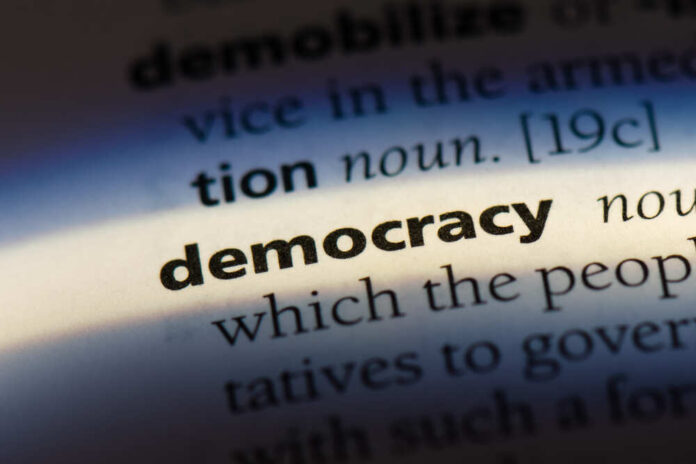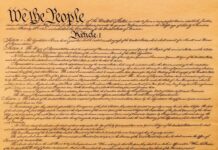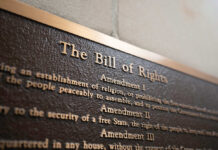
A Common Misconception
As of late, we have heard the tiresome warning about the “threats to democracy.” We are often reminded how we need to “fight for democracy.” Coupled with these phrases are calls for the United States to abolish the electoral college so the president is determined by the popular vote.
But the U.S. is not a democracy, at least not a “pure democracy,” which just means that people directly elect their politicians. For example, if the U.S. followed the popular vote, then Hillary Clinton would have won the 2016 election because she received nearly 3 million more votes than Donald Trump.
Ayn Rand once said that “the smallest minority on earth is the individual. Those who deny individual rights cannot claim to be defenders of minorities.”
The founders of the country believed this as well, which is why they advocated and instituted a representative democracy or, a constitutional republic.
A representative form of government is when a citizenry elects public officials to represent them and legislate laws rather than directly voting for laws themselves.
“Tyranny of the majority”
The purpose of this system of governance was to balance the representation of each state relative to their population. It would be grossly unfair to many Americans if California, New York, Texas, and Florida determined future presidential elections because their populations are greater than the Dakotas.
The founders were fearful of a tyrannical majority with too much political power overstepping the rights of the minority, and so they crafted the Constitution to delineate the process of electing government officials, such as the president.
Candidates running for president are not directly elected by citizens but are selected by elected representatives in the candidates’ party. Party delegates then vote for their candidates and certify their votes, which are then sent to the Senate for confirmation. When a citizen circles their choice on their ballot, they are actually voting for a party delegate who, one hopes, will cast his vote for the party nominee.
Corruption
While this system has advantages, like protecting individual and states’ rights, it has its disadvantages as well. Public officials are more prone to corruption, like through lobbyist influence and campaign donations.
Public officials who are representatively elected are not directly beholden to their constituents. Officials can also delegate their power to governmental agencies which are composed of bureaucrats that were appointed by other government officials but not citizens. This arrangement leads to a bloated government that reportedly takes advantage of the citizens because they lack political influence and power.














